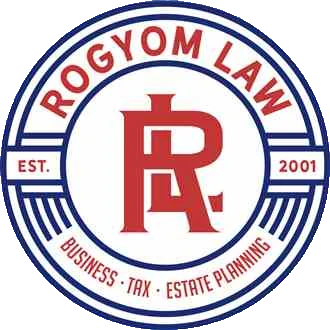Many unscrupulous tax debt settlement companies use the legitimate IRS offer-in-compromise process to swindle consumers. Tax relief companies are some of the companies most complained about by consumers by consumers. I do not doubt their horrible ratings! As a tax attorney, I have received countless calls from taxpayers who previously fell victim to scam tax relief companies claiming they could resolve any tax issue through the IRS tax debt settlement program, the Offer-In-Compromise.
My conversations with clients previously cheated by these companies gave me the following indicators of when a tax relief company may not be legitimate:
1) During your initial meeting they do not ask why you owe the tax debt. A reputable tax attorney first determines if you truly owe the tax debt and will not consider an offer-in-compromise settlement until that possible easy way to fix your tax problem is eliminated. Unscrupulous tax relief services will push you into an offer-in-compromise without even considering whether they can easily resolve the issue by sending the IRS a few documents. Why?
First, a tax settlement company’s “tax expert” you are speaking to is often ony trained and compensated to land offer-in-compromise clients. Second, the person on the phone may only be a salesperson and may not know anything about taxes. They try to convince you the easy way to solve your problem is through an offer-in-compromise.
2) Unethical companies promise results… great results. Sure, it’s nice to be confident, but it’s a red flag when they predict the IRS will accept your offer-in-compromise before they know anything about you. Even skilled tax attorneys cannot make the IRS accept an offer-in-compromise for some taxpayers.
3) They advertise so much you know their name. If a company advertises offer-in-compromise services on TV or radio, there’s a good possibility it’s one of those companies that have a sketchy track record. Of course, many Maryland tax attorneys advertise, but you will not find many advertising in timeslots before payday loans, cash-for-gold, and other companies that take advantage of less knowledgeable consumers.
4) They claim they’ll have your tax problem resolved quickly. The offer-in-compromise process is slow, sometimes real slow. Unethical tax settlement companies love to promise how quickly they can resolve your problems.
5) Your company representative regularly changes. If you deal with a revolving door of company contacts, there could be an issue. By the time a tax attorney is ready to file your offer-in-compromise, they will likely have in-depth knowledge of your finances, information they will need to get you the best deal. This requires far more than just requesting the bare minimum of documents needed to file, it requires knowledge of you and what it takes to run your home.
6) Unresponsive company representatives… after they have your money. Of course, after the tax settlement company has your money, it may be too late. Or maybe not, there’s no reason to throw good money after bad. Unfortunately, a slow-moving representative can cost you a lot of money if your income or status changes during the delay.
7) Look for complaints. The unscrupulous tax settlement companies often have lenghty lists of bad reviews. .
8) Go with your gut. Don’t be afraid to trust your instincts. If they seem to good to be true, if you feel like you are being pressured into working with them, if the only thing they seem to care about is getting your check, you know what to do.
If you find you are unable to pay your taxes, contact a local tax attorney or accountant. To see if the tax attorney is actually licensed in your state, your state’s bar association likely provides an online directory similar to Maryland. If you have already fallen victim to an unethical tax settlement company, you should not be afraid to start over. There are many reputable tax attorneys who will not take advantage of your situation. Try to receive a refund and/or contact your state’s Attorney General’s Office to file a complaint if deserved. Tax settlements generally require professional assistance, but I do suggest you familiarize yourself with the process by reviewing the IRS website’s information on an offer-in-compromise.
For further information, please contact Jeff Rogyom at (410)929-4578.

